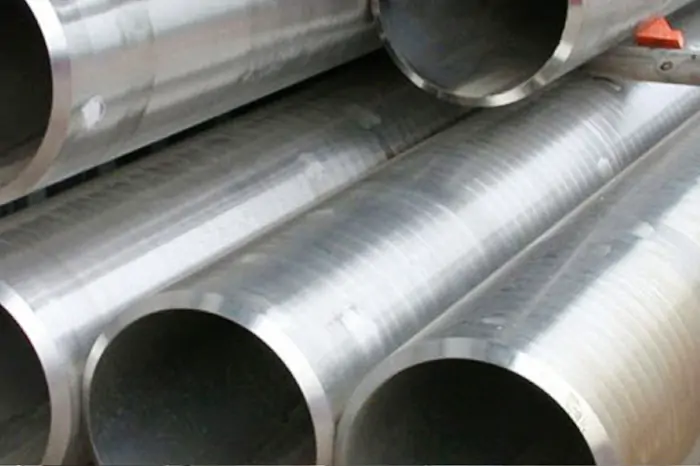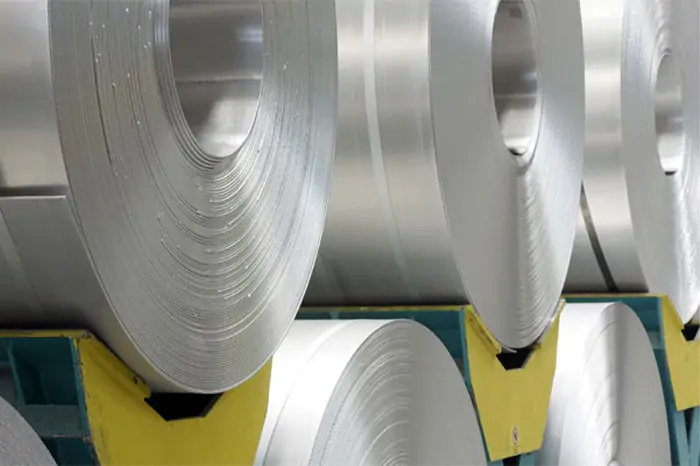When it comes to materials that can withstand extreme temperature conditions, high-strength copper alloys are at the forefront. These alloys are not only known for their exceptional ability to endure high temperatures but also for their excellent electrical and thermal conductivity, corrosion resistance, and mechanical strength. Their unique properties make them indispensable in various industrial applications where performance and reliability are crucial. In this article, we’ll explore the properties, uses, and benefits of these copper-based superalloys and why they are essential for industrial applications. By understanding the characteristics and applications of high-strength copper alloys, industries can leverage these materials for improved efficiency and durability.
Table of Contents
ToggleUnderstanding Copper Alloys
Copper alloys are mixtures of copper with other metals or elements. By combining copper with elements like nickel, beryllium, or zirconium, we can enhance its natural properties, making it suitable for a wide range of industrial uses. The process of alloying not only improves the inherent strengths of copper but also introduces new characteristics that are beneficial for specific applications. These alloys are categorized based on their properties and applications, with high-strength and heat-resistant variations being particularly valuable in extreme conditions. The ability to customize these alloys for specific uses makes them incredibly versatile and adaptable to various industrial needs.
Key Properties of Copper Alloys
Copper alloys are chosen for their unique combination of properties:
- Thermal Conductivity: Copper alloys conduct heat efficiently, making them ideal for applications where heat dissipation is crucial. This property is especially beneficial in industries such as electronics, where overheating can lead to equipment failure. The ability to dissipate heat quickly ensures that devices operate within safe temperature ranges, enhancing their performance and lifespan.
- Electrical Conductivity: They also offer excellent electrical conductivity, which is vital in electrical and electronic applications. This property allows for efficient energy transfer, reducing power loss and improving the overall efficiency of electrical systems. In high-performance applications, the superior conductivity of copper alloys ensures that electrical components function reliably under demanding conditions.
- Corrosion Resistance: These alloys resist corrosion, which prolongs their lifespan in harsh environments. Corrosion resistance is essential in industries such as marine and aerospace, where materials are frequently exposed to corrosive elements. By withstanding harsh environmental conditions, copper alloys reduce the need for frequent maintenance and replacement, saving time and resources.
- Mechanical Strength: High-strength copper alloys maintain their strength at elevated temperatures, making them reliable in demanding applications. This mechanical resilience ensures that components made from these alloys can endure significant mechanical stress without deforming or failing. The combination of strength and durability makes copper alloys suitable for high-load applications where material failure is not an option.
Types of High-Strength Copper Alloys
There are several types of high-strength copper alloys designed for extreme temperature conditions, each with unique properties and applications. Understanding the specific characteristics of each type allows industries to select the most appropriate alloy for their needs, optimizing performance and cost-effectiveness.
Beryllium Copper Alloys
Beryllium copper alloys are renowned for their strength and hardness. They are used in applications requiring non-sparking and non-magnetic properties, such as in the aerospace and oil and gas industries. These alloys maintain their strength even at temperatures as high as 200°C. Additionally, their high fatigue strength and resistance to wear make them suitable for components that experience repeated stress, such as springs and load-bearing parts. The versatility of beryllium copper makes it a preferred choice in environments where safety and durability are paramount.
Copper-Nickel Alloys
Copper-nickel alloys are known for their excellent resistance to seawater corrosion, making them ideal for marine applications. They also maintain high strength and resistance to oxidation at elevated temperatures, which is beneficial in heat exchangers and power plants. These alloys are often used in shipbuilding and offshore oil and gas installations, where exposure to corrosive seawater is a constant challenge. The ability to withstand harsh marine environments without deteriorating ensures long-term reliability and reduced maintenance costs.
Copper-Chromium-Zirconium Alloys
These alloys combine copper with chromium and zirconium to enhance their mechanical properties. They are used in applications that require high electrical conductivity and strength, such as welding electrodes and electrical connectors. The addition of zirconium and chromium improves the alloy’s hardness and wear resistance, making it suitable for high-stress environments. These properties make copper-chromium-zirconium alloys a popular choice in manufacturing sectors where precision and durability are critical.
Applications of High-Strength Copper Alloys
High-strength copper alloys are used across various industries due to their ability to perform under extreme conditions. Their adaptability and robust performance make them indispensable in sectors where reliability and efficiency are non-negotiable.
Aerospace Industry
In the aerospace industry, copper alloys are used in components such as bearings, bushings, and gears due to their strength and ability to withstand high temperatures. Their non-magnetic properties are also crucial in avionic applications. The aerospace sector demands materials that can endure the rigorous conditions of flight, including extreme temperature fluctuations and mechanical stress. Copper alloys, with their exceptional properties, provide the reliability and performance required to ensure the safety and efficiency of aerospace components.
Automotive Industry
Copper alloys are used in the automotive industry for components like radiators, heat exchangers, and brake systems. Their thermal conductivity ensures efficient heat transfer, while their strength ensures durability. In modern vehicles, the ability to manage heat effectively is critical for maintaining engine performance and safety. By utilizing copper alloys, automotive manufacturers can produce more efficient and reliable vehicles that meet the demands of today’s consumers.
Electronics and Electrical Industry
The excellent electrical conductivity of copper alloys makes them ideal for use in electrical connectors, switches, and semiconductor devices. They are also used in manufacturing components that require precision and reliability. As the demand for electronic devices continues to grow, the need for materials that can deliver high performance while maintaining energy efficiency is more important than ever. Copper alloys provide the perfect balance of conductivity, strength, and durability for cutting-edge electronic applications.
Benefits of Using High-Strength Copper Alloys
The use of high-strength copper alloys provides numerous advantages in industrial applications:
- Durability: These alloys maintain their mechanical properties at high temperatures, providing long-lasting performance. Their ability to withstand harsh conditions without compromising on strength or integrity ensures that components made from copper alloys have a longer service life, reducing the need for frequent replacements.
- Efficiency: Their thermal and electrical conductivity enhances the efficiency of systems and devices. By facilitating effective heat dissipation and energy transfer, copper alloys help optimize the performance of various industrial systems, leading to cost savings and improved operational efficiency.
- Versatility: Copper alloys can be customized to meet specific requirements, making them versatile in various applications. This adaptability allows industries to tailor the material properties to suit their unique needs, whether it be enhancing conductivity, increasing strength, or improving corrosion resistance.
- Resistance to Wear and Corrosion: Their resistance to environmental factors reduces maintenance needs and extends the lifespan of components. By minimizing the effects of wear and corrosion, copper alloys contribute to the longevity and reliability of industrial equipment, ensuring continuous operation and reduced downtime.
Choosing the Right Copper Alloy
When selecting a copper alloy for high-temperature applications, consider the specific requirements of your project, such as the operating temperature range, mechanical stress, and environmental conditions. The choice of alloy can significantly impact the performance and durability of the final product, so it’s essential to make an informed decision. Consulting with materials engineers or suppliers can provide valuable insights into choosing the best alloy for your needs. Their expertise can guide you in selecting an alloy that not only meets your technical specifications but also aligns with your budget and long-term operational goals.
Conclusion
High-strength copper alloys are indispensable in industries that operate under extreme temperature conditions. Their unique combination of thermal and electrical conductivity, mechanical strength, and corrosion resistance makes them ideal for demanding applications. By understanding their properties and applications, you can select the right copper alloy to enhance performance and reliability in your projects. The strategic use of these alloys can lead to significant improvements in efficiency and cost-effectiveness across various sectors.
In summary, whether you’re working in aerospace, automotive, or electronics, high-strength copper alloys offer a solution that combines durability, efficiency, and versatility, ensuring that your components perform optimally even in the most challenging environments. By leveraging the strengths of these remarkable materials, industries can drive innovation and achieve new levels of success in their respective fields.








